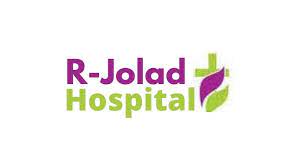• Commissions National Trauma Centre
• Disease outbreak tops agenda at emergency National Council on Health meeting
• PSN tasks members, scientific researchers on development of drugs, vaccines
AS part of efforts to prevent the spread of the Ebola Virus Disease (EVD) and brainstorm on new strategies, the Federal Ministry of Health (FMoH) on Monday convened a two-day emergency National Council on Health (NCH) meeting and commissioned the National Trauma Centre.
Minister of Health, Prof. Onyebuchi Chukwu, at a press conference on Ebola Virus Disease Outbreak in Nigeria explained how the virus landed in the country and what the government is doing to address the situation.
Chukwu, also, in his speech on the strategies of government to prevent the spread of EVD at the National Council on Health urged all members of Council to rise up to this National Public Health Emergency and replicate the actions at the Federal level to the state level.
Contrary to earlier reports, Chukwu said the country took measures to prevent the virus since the first notification of the outbreak of EVD in Guinea on March 24, 2014.
The Guardian also reliably gathered that more Nigerian doctors are now coming out and volunteering to join the special team tackling the EVD outbreak. It was learnt that before now, so many doctors refused to join the team for fear of getting infected. Investigation revealed that the doctors are encouraged by the provision of more protective gadgets, special remuneration and insurance cover by the federal government and that it is now over 21 days after the index case and only one of the primary contacts have died.
Also, the Pharmaceutical Society of Nigeria (PSN) has said that it is naturally concerned about outbreaks of Ebola cases in Nigeria even as it challenged pharmaceutical and scientific researchers to respond to this public health concern through intense research and development to identify a vaccine to prevent the disease.
President PSN, Mr. Olumide Akintayo, in a press statement said that in recent reviews by the Society’s research and study group, it was discovered that some previous work had been conducted through four earlier studies.
The studies, according to Akintayo, include: High-titeredhyperimmune horse anti-Ebola serum has been protective in baboons experimentally challenged with Ebola; Monoclonal antibodies from the marrow of Ebola survivors; a potential, promising vaccine that offered considerable protection against Ebola to guinea pigs; and in mice used as a model for Ebola infections, a series of nucleoside analogue inhibitors of S-adenosylhomocysteine hydrolase provided protection against Ebola-Zaire when administered within 2 days of Ebola-Zaire infection.
Akintayo said three companies, the US government and the Public Health Agency of Canada are behind the experimental drug.
The PSN President said: "ZMapp was first identified as a drug candidate in January 2014 and has not yet been evaluated for safety in humans. As such, very little of the drug is currently available.
“Promoters of "ZMapp and its partners are co-operating with appropriate government agencies to increase production as quickly as possible."
Meanwhile, Chukwu further explained how the virus came into the country: “It has been 22 days since EVD first landed in Nigeria. As at today, 177 primary and secondary contacts of the index case have been placed under surveillance or isolation. Nine developed EVD, bringing the total number of cases in Nigeria to 10. Of these 10, two have died, the Liberian American and the Nigerian nurse, while eight are alive and currently on treatment.
“At the sub regional level, the EVD was discussed as a substantive agenda during the Summit of the Authority of Heads of State and Government on the 9th of July 2014 in Accra Ghana. Nigeria played, as usual, its leading, pioneering and compassionate role during the Summit with the first and only donation of 3.5 million USD humanitarian and capacity building aid to the three affected countries of Liberia, Guinea and Sierra Leone, the West African Health Organization (WAHO), and the ECOWAS Ebola Fund.”
Chukwu said President Goodluck Ebele Jonathan approved the National Ebola Virus Disease Emergency Containment Plan with an immediate cash backing of N1.9 billion ($12 million) to further complement the containment efforts already in place, within the initial forty eight hours of the death of this first Nigerian from EVD.
The Minister said the Federal Government, through the Federal Ministry of Health and its agencies, is working very closely with the World Health Organization (WHO), the United Nation Children Fund (UNICEF), the United States (US) Centre for Disease Control and Prevention (CDC), local authorities and other international partners to further deepen and broaden these containment efforts.
Chukwu singled out the WHO and the CDC for special commendation for their understanding and continuous support in this challenging moment; particularly for the partnership and most importantly for the capacity building of our Nigeria Centre for Disease Control (NCDC).
Chukwu said the FMoH, through the NCDC, took necessary steps to sensitize Nigerians and put in place necessary machinery to halt and or contain it in the eventuality of the outbreak coming into the country.
He said all the 36 States and the Federal Capital (FCT) were alerted on the outbreak in Guinea and advised to maintain vigilance and to strengthen disease surveillance mechanism for haemorrhagic fevers and promptly report suspected cases.
On the National Trauma Centre situated in the National Hospital, Abuja, Chukwu said it has the capacity and capability to handle all forms of trauma whether this be from falls, fires, accidents, natural or man-made disasters including terrorist activities.
He said it was borne out of a clear need as there had been an increase in the number of persons sustaining physical trauma from a variety of causes and the frequency with which mass casualties now occur in the country.
Chukwu also said that the Draft Policy on a National Ambulance Service Scheme, as a crucial ancillary service to this network of Trauma Centres, would soon be issued for field-testing. “I most respectfully also give a hint that this National trauma Centre shall become a nidus/leader in the proper training of Paramedics in Nigeria; The Goodluck Jonathan Administration having developed and launched a curriculum for their training,” he said.
Chukwu charged participants at the National Council on Health to endeavour to provide appropriate correct information to our people and urgently dispel rumours. “While ensuring that our citizens are well sensitized on these prevention strategies, our health workers should be well protected and all states should be prepared to attend to any emergency that may arise,” he said.
Chukwu said Nigeria wishes to emphasize that it essentially remained an Ebola Virus free country until this incidence of importation and unfortunate contamination. “We will continue to work with all stakeholders, local and international partners to maximize on this and intensify efforts to contain and treat the existing cases,” Chukwu said.
The Minister said the Liberian Government has expressed its deepest sympathies and regrets that Mr. Sawyer had even embarked on this tragic journey, which has brought needless sufferings, death and has placed an unnecessary stress on the health system. “In the same spirit, we share in solidarity, the grief of the governments and people of Liberia, Guinea and Sierra Leone as we confront this challenge together,” Chukwu said.
The Health Minister reiterated: “The Federal Government of Nigeria shall continue to discharge its responsibilities within the sub region as “we collectively confront and stop this outbreak of Ebola.”
Chukwu also clarified issues on how and when the virus came into Nigeria. He said: “On Sunday the 20th July, 2014, a Liberian-American Financial Consultant with the Liberian Ministry of Finance, Mr. Patrick Sawyer, who was under surveillance in Liberia for a suspected case of Ebola Virus Disease (EVD), evaded the authorities in Monrovia and tragically boarded for Lagos in Nigeria, via Lome in Togo and Accra in Ghana. His intention was to connect to Calabar in Nigeria to attend a two-day retreat organized by the ECOWAS Commission, and later the same week to Atlanta Georgia in the USA to celebrate his daughter's birthday. However, because of the protocols initiated in all our ports since the EVD outbreak in the three countries of the sub region since April this year, Mr. Sawyer was flagged at the point of disembarkation in Lagos. He was then accordingly quarantined and transferred to a hospital in Lagos, straight from the airport, for further actions.
“Twenty Four hours later, Mr. Sawyer who had by then developed the full complement of the EVD symptoms also tested positive to the Ebola Virus at the laboratory of Lagos University Teaching Hospital (LUTH), and died three days later on the 24th of July, 2014. By then, the National Ebola Virus Response Plan already in place had been activated and all the forty-eight passengers who had flown to Nigeria with the late Mr. Sawyer were traced through an elaborate contact tracing mechanism. Also, twenty two others (among whom, were the health personnel who treated the late American) were promptly identified, isolated and monitored for symptoms and tests of the EVD
“Unfortunately, out of the initial 70 under both surveillance and isolation, nine of them developed symptoms of Ebola and were confirmed to have EVD by the same laboratory at LUTH; tragically, one of them, a nurse, passed away on Wednesday the 6th of August, 2014.”
Reacting on the demand for the experimental drug, ZMapp, PSN President said: “ZMapp is a drug still in its experimental stage being produced by Mapp Biopharmaceuticals in collaboration with LeafBio (San Diego, CA), Defyrus Inc. (Toronto, Canada), the U.S. government and the Public Health Agency of Canada (PHAC). This drug is composed of three humanized monoclonal antibodies manufactured in plants specifically the plant Nicotiana which is commonly used in tobacco production. Genes of the necessary antibodies are fused to the tobacco genes, infecting the tobacco with the virus. The plant then produces wanted antibodies that are subsequently separated from the plant when it is ground up.”
ABUJA: Training Schedule for Basic Life Support BLS, Pediatric Advanced Life Support (PALS), Advanced Cardiovascular Life Support ACLS, First Aid, CPR, AED
PORTHARCOURT: Training Schedule for Basic Life Support BLS, Pediatric Advanced Life Support (PALS), Advanced Cardiovascular Life Support ACLS, First Aid, CPR, AED
LAGOS: Training Schedule for Basic Life Support BLS, Pediatric Advanced Life Support (PALS), Advanced Cardiovascular Life Support ACLS, First Aid, CPR, AED


.jpg)

.jpg)
